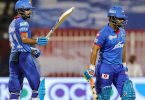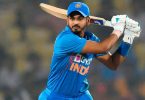His two-year contract will expire at the end of ODI World Cup but head coach Rahul Dravid’s future will be followed keenly in case the Indian team lifts the coveted trophy. It is a foregone conclusion that Dravid will be one of the fall guys if India cannot at least make it to the title clash as a mere semi-final appearance wouldn’t be considered good enough. BCCI may search for a coach again and it will be interesting to see if ‘The Wall’ will be keen on a renewal of contract — partial or full — in case Board supremo Jay Shah offers a fresh deal.
There is a school of thought that Dravid, in case he is keen, should continue as the red ball coach with South Africa (away) and England (home series) series scheduled very close to the World Cup. There is no harm in having separate coaches for limited overs and Test format moving into the next cycle post World Cup, just like England have Brendon McCullum (red ball) and Matthew Mott (white ball).
Dravid has been given breaks from assignments to recuperate as living out of suitcase for someone, who is involved in a tremendously high-pressure job, could be taxing. Someone like Ashish Nehra (successful IPL coach) is an apt choice but sources close to the left-arm seamer of yesteryears have said that he is “not interested” as of now with his contract with Gujarat Titans running till the end of 2025 season.
“Suppose India wins the World Cup, Dravid himself might not want a renewal as he would like to end his stint on a high. But if you ask me, post World Cup, the BCCI should seriously think of having separate coaches for separate formats. They should ask Rahul to continue as red ball coach,” a former BCCI office-bearer told PTI on conditions of anonymity. At this point, whether it is Dravid or the Board top brass, they would like the focus on the big event, which starts October 5.
While Dravid arrived amidst lot of fanfare after Ravi Shastri’s departure but as a white ball coach, he hasn’t really left an impression which could compel anyone to consider him as a shrewd tactician.
Rather, he has been perceived as someone, who is a bit on the defensive when it comes to taking tough calls — both in T20Is and ODIs.
If in T20I World Cup, he allowed the top-three that had past its sell-by-date in shortest format to continue, the decision to drop Ravichandran Ashwin during the World Test Championship final didn’t seem to be a very prudent call.
The lack of a right-arm spinner (finger or wrist) in the current World Cup squad or the bullishness to include KL Rahul, without him proving his match-fitness are decisions that might come back to haunt him.







